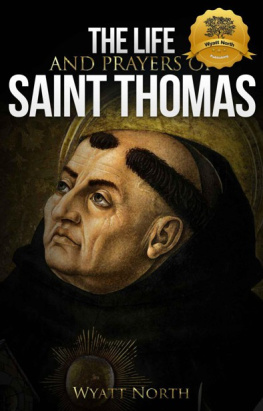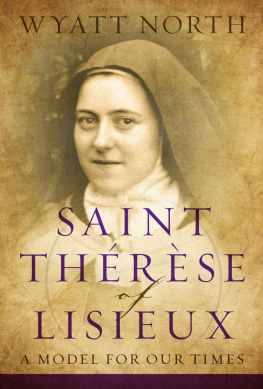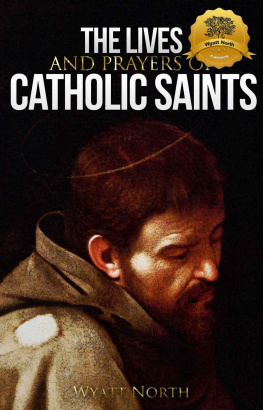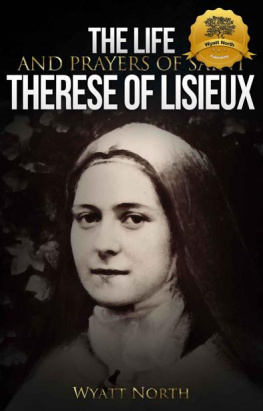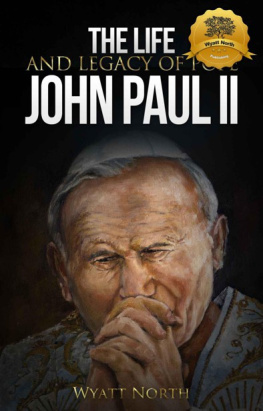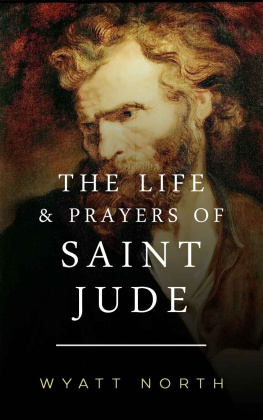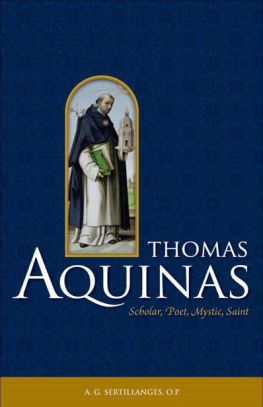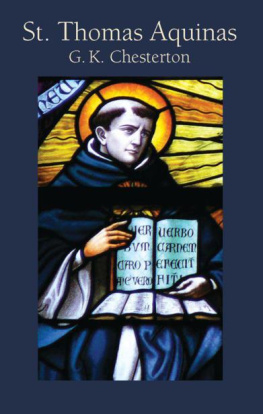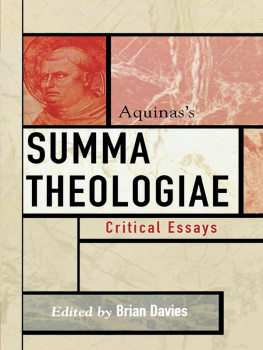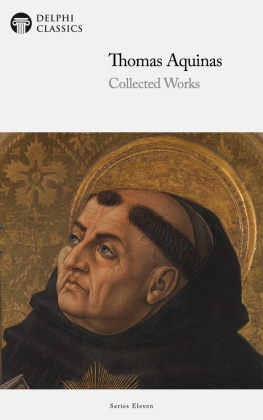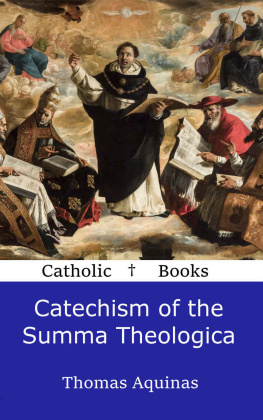One part biography, one part prayer book, The Life and Prayers of Saint Thomas Aquinas is an essential book for any Christian.
Aquinas genius lay in his ability to synthesize vast and disparate sources into intelligible and convincing discourse.
After a thorough investigation of the scholarship of Thomas Aquinas, one might contend that only the intellectually stalwart could fully benefit from knowing this great man of the church; this is perhaps true. Likely, not many average Christians would choose Aquinas for their bedtime reading, just as most patients would not care to hear the scientific explanation behind the human genome.
Yet, the implication of that discovery, just like the implications for Aquinas groundbreaking approach to Christianity, has changed everything.
Fundamentally, for Aquinas, human life is meaningful, and we need not despair, for God has given us human reason that, by Gods grace, can assist us to achieve fullest expressions of our God-given gifts.
Quick Facts
The new Quick Facts section in The Life and Prayers collection provides the reader with a collection of facts about each saint!
Born:
c.1225 at Roccasecca, Aquino, Naples, Italy
Died:
March 7, 1274 at Fossanuova near Terracina
Occupation:
Priest, Philosopher, Theologian
Feast:
January 28 (new), March 7 (old)
Attributes:
The Summa theologiae, a model church, the Sun.
The Life of Saint Thomas Aquinas
An Introduction to His Life
T he compilation of Latin primary sources on the life of Saint Thomas Aquinas, known as the Fontes Vitae Sancti Thomae Aquinatis ---recently published to give wider accessibility--- establishes 1227 as the year of Aquinas birth, often assigned as 1225, January 28. All agree that he died in 1274.
The story lingers about his mother Theodora, whom, during her pregnancy with her eighth child, a holy hermit visited to inform her that her son would enter the Order of Friars Preachers (The Dominicans), and that his learning and sanctity would exceed all others. The hermits vision was not father Count Landulf or Countess Theodoras plan, given their close connection to the more established and socially acceptable Benedictines of which an uncle was abbot at Monte Cassino. Thomae Aquinatis may have been born in a castle in Lombardo, near Naples, Italy, descended from Henry VI and Frederick II and emperors of the Roman Empire, but Gods call would trump all others attempts to steer him otherwise.
Their plans for their son in place---or so they thought--- Countess Theodora and Count Landulf entered Thomas, at age five, into the Benedictine abbey where his uncle was abbot. From the start, he was educated in Latin, grammar, logic, and rhetoric. As a teenager he was exposed to the disciplines we moderns would recognize as a classic liberal arts education. Add theology and philosophy to the mix of music, mathematics, and astronomy, and Thomas was already beginning to hone a skill that would distinguish him for all of time: defending his knowledge through the use of rhetoric.
Thomas preceptor could not help but notice the boys persistent questioning, What is God? The abbot, his uncle, insisted Thomas talents would be wasted at Monte Cassino. In 1239 he was sent to Naples to study at the University. Some say it was the war that broke out between Emperor Frederick II and Pope Gregory IX that came so close to home that caused Thomas parents send him to Naples to protect him. In either case, Gods plans were in place.
In Naples, Thomas expressed an interest in studying the Holy Orders of the newly formed mendicants, the Dominicans. Founded around the same time as the Franciscans, it was their radical evangelical ideal of poverty, their mobility, and their devotion to study that drew the burgeoning man of faith, the scholar. Meanwhile, as a student at university he had access to the ancient Greek and Roman philosophers and to the finest minds in Europe. One of his favorite contacts was with a Dominican brother, John of St. Julian, who challenged him in all matters theological and devotional and who helped Thomas, at 19, discern a definitive call to monastic life as a Dominican.
Thomas knew this call would upset his family. The brothers sent him to Rome, but Theodoras determination to stop this nonsense knew no bounds. She had Thomas brothers kidnap him and imprison him at a fortress in San Giovanni at Rocca Secca. His family set out for the next eighteen months-or-so to destroy his vocation. They even sent a prostitute to challenge his virtue. The earliest biography says Thomas drove the temptress away with a hot brand and received a visit from two angels in a dream who promised him the girdle of perpetual virginity and lifelong relief from carnal desires.
God used Thomas time in captivity to further his vocation and education. His sister brought him books: the Bible, Aristotles Metaphysics---by now Thomas lifelong intellectual ties to Aristotle had begun---to name a few, while the brothers supplied him with new habits and received letters from the captive. For whatever reason, perhaps that Theodora realized the futility of resisting the hermits vision and her sons determination, Thomas was freed, let down by a basket into the arms of his brothers who proclaimed, he had made as much progress as if he had been in a stadium generale. (Fontes Vitai) Finally, Thomas was free to don his Dominican habit in public and was sent forth to pursue highest intellectual pursuits. After the Popes blessing, he was presented before Johannes von Wildeshausen, the Master General to the Dominicans.
If ambition had had the upper hand, Thomas could have returned to Monte Cassino as Abbot by invitation of the Pope. Instead, he was sent to the College of St. James in Paris, then the intellectual center of Christendom. There, Friar Thomas met his mentor and teacher, Chair of Theology, Albertus Magnus. Under the masters influence, Thomas intellectual trajectory would be changed forever. Essentially, Albertus was rooted in the Scholastic tradition, the method of teaching that dominated the schools of Western Europe in the medieval period.
The Schoolmen they were called, were Christians, many of whom believed that knowledge could be achieved only by faith, but not so Albertus. He was among those scholars who believed the metaphysical quest of the Greek philosophers like Aristotle and Plato could complement the spiritual quest of theologians, past and present. Because of his broad range of scholarly interests---in other disciplines as well--- and mastery, Albertus Magnus was designated Doctor Universlis. It was his impact on his student, Thomas that shaped Aquinas masterpiece, Summa Theologica , a work that remains central to Catholic study and teaching worldwide.

